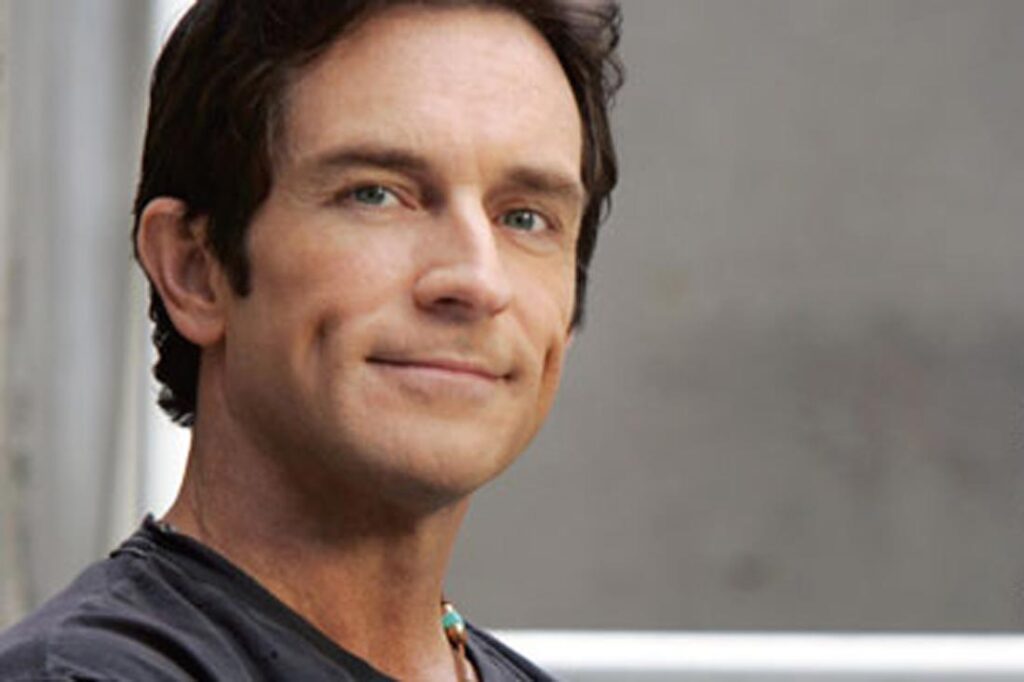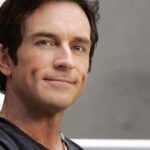“The adventure you’re ready for is the one you get!” Jeff Probst told the world in September 2009 when he accepted his second Emmy as “Outstanding Host for a Reality or Competition Program.” Crisscrossing the globe for over two decades as the face of Survivor, a show that cracked open the whole notion of reality television, Probst’s adventures seem endless. He’s camped out for months in the Amazon jungle and Australian Outback, not to mention an island paradise or two.
But for 61-year-old Probst, adventure encompasses more than Survivor-style challenges. Life’s journey as a whole, including the tough choices, lessons learned and prep work, readies him for the next opportunity. He’s grateful for those opportunities, as well as the people who encouraged him to dream big and pursue his goals.
But he knows not all kids are so lucky. “There’s this magnificent world out there, and as much of it is yours as you’re willing to take,” says Probst, who tried to convey that message to disadvantaged young people through his work with The Serpentine Project.
Jeff Probst’s early influences
Probst’s own adventurous spirit took root early on. The eldest of three boys, while growing up in Wichita, Kansas, he was influenced as a teen by the books of Joseph Campbell, the late comparative mythology and religion author whose philosophy was best described in his phrase, “Follow your bliss.” Campbell believed everyone experiences a “hero’s journey” involving personal growth and change. It’s a theory he first put forth in his best-known work, The Hero With a Thousand Faces, published in 1949.
Jeff Probst paid homage to Campbell during his Emmy acceptance speech, paraphrasing the author’s message (“The achievement of the hero is one that he is ready for, and it’s really a manifestation of his character. It’s amusing the way in which the landscape and conditions of the environment match the readiness of the hero. The adventure that he is ready for is the one that he gets.”) from The Power of Myth, which continues to shape his own outlook.
Still, the young Probst didn’t dream too far beyond his Midwestern boundaries. “We lived in Kansas and that was the end of it,” he says. That is, until his dad’s new job uprooted the 15-year-old and landed him near a busy metropolis sporting a Space Needle. The move to Bellevue, Washington, “opened my eyes up to a new way of looking at the world,” he says.
An early storyteller
Probst developed an interest in storytelling and explored different methods of expression—at one point as an unruly columnist for his high-school newspaper and an underground paper he and his friends founded, at another as a member of a rock band he joined after dropping out of college. His parents were not thrilled with the latter move, he says: “To their credit, they never did anything but support us kids, even when their first son did something that would make most parents say, ‘Absolutely not!’”
Probst’s father, who worked for Boeing, helped channel his son’s interests, brokering an interview with the aircraft manufacturing company’s motion picture department. Probst landed the job, and he says for the most part, he shut up, listened and learned. He honed his storytelling skills and learned how to work in front of the camera, which earned him more money and greater opportunities.
Jeff Probst on the power of believing in yourself
Signing with a Seattle agent, he got his first commercial and started hustling for more work. When a local show rejected him for an on-air job because producers wanted better-known L.A. talent, Probst checked out his competitors’ audition tapes.
Two stood out—a guy named Kinnear and another named Lauer. “At the time, Greg Kinnear was not a movie star and Matt Lauer wasn’t the biggest star on morning television. They were just guys getting their starts,” Probst says.
He thought the quality of his work rivaled theirs, “so I put myself out there and I sent a tape to their agent and, you know what she said? ‘I think you’re right.’”
Three weeks later, he was living in Manhattan, working as an on-air personality for the FX network.
“You have to have the faith to believe in yourself, and it goes back to all those things that haunt us—asking the girl out, asking your boss for a raise, going for the next job. If you don’t believe in yourself, damn sure no one else is going to,” Probst says.
Jeff Probst’s adventurous spirit takes hold
“I was ready for that adventure,” he says. “I believe Joseph Campbell knew what he was talking about. If you’re ready, then get on the bus and leave. If you’re not, then enjoy where you are and find a new adventure. Maybe your adventure is a different one today. But whatever it is that you’re ready for—whether it is to kiss the girl or go for the brass ring in your professional life—you’re not going to get there until, on some level, you’re ready for it.”
After four years at FX, Jeff Probst hosted Rock & Roll Jeopardy before leaping to Access Hollywood. While there, he loged more than 300,000 miles traveling the world as a correspondent and gaining the chops for what would become the role of a lifetime.
The role of a lifetime
When Survivor first showed up on his career radar, Probst was intrigued. The concept, he believed, appealed to an astute student of the human condition who enjoyed the choreography of personal interactions. The premise was unique for television, and Probst campaigned hard to be Survivor’s host. The rest was up to executive producer Mark Burnett, whose vision for the show, Probst says, catapulted the CBS series into television history and took his career to new heights.
Yet, on that remote Malaysian island of Pulau Tiga in the South China Sea some 20 years ago, Probst never dreamed Survivor would become such a big hit, let alone a phenomenon changing the face of television.
“I was lucky enough that the guy who hired me [Mark Burnett] turned out to be a remarkable storyteller, and he knew how to execute. Because Survivor in the hands of a lot of other television producers could have been a disaster,” Probst says.
From the beginning, Burnett gave Probst a voice, as well as the most valuable lesson he’s ever learned about managing people: “Empower them to be their best by giving them the room to fail. Go for it. Try it. If it works, do it again tomorrow, and if it doesn’t, try something else.”
Measuring success
Jeff Probst is proud of his Survivor work because it represents his best effort, which, ultimately, is the only measure of success that really counts. Trite? Not for Probst. He believes giving your best means doing your homework, putting in the time, concentrating and getting your priorities straight.
“One thing I’ve learned is you are the measurer of your success, and that’s something that can easily get lost in job titles or how much money you make or awards you’re given for your performance at work,” Probst says. “But the truth is that only you truly determine if you’re successful or not.”
For Jeff Probst, personal growth is the best success
Although Probst relishes his accomplishments and the tangible aspects of his celebrity, he’s proud above all of the personal progress he’s made. “I’ve worked the hardest on how to become a better person on this planet,” he says. “There are certainly people who do a lot better things than I do and more often, but I’m a better person than I was yesterday, and that’s the measure of success that I hold myself to.”
Countless starry nights in makeshift homes on location in jungles and on beaches have given Probst opportunities to contemplate the world and his place in it. “Survivor has been the greatest gift ever,” he says. Finding himself living in Kenya or on the island of Samoa for months at a time, Probst is witness to a broader sense of life, where food, culture, religion and even the way women and men are treated socially is different.
Laughter, however, seems to be a common denominator. Probst recalls pickup volleyball or soccer games with residents on Samoa. “They are all laughing, even when they are in competition. There’s never taunting or making fun of somebody for hitting a bad shot. It’s fun. There’s laughter. They’re playing,” he says.
Despite economic hardships unfathomable to many Americans, the residents of Samoa celebrate life and play. And that has made an impression on Probst. “I’m here for an uncertain amount of time and I want to get the most out of it. Part of that is things that I want to achieve in work, but the more I travel and the more experiences I have with Survivor around the world, the more I realize that I also want to live, I want to laugh and I want to love.”
Giving back to the community
That philosophy includes leveraging his celebrity for the greater good. Among his other charity work, Probst founded and helped raise money and awareness for The Serpentine Project, whose mentors helped young adults develop action plans to reach their goals.
Probst also has helped raise money and awareness for the American Red Cross, which provided assistance to tsunami-ravaged Samoa shortly after the 20th season of Survivor wrapped shooting there. Celebrating Survivor’s 20th season, which aired February 2010, was perhaps even more poignant considering Mother Nature’s devastation.
Jeff Probst’s hero’s journey complete
While the concept for the 20th season took some backroom wrangling, Probst says, “We came up with an idea that we felt really encompassed what Survivor has been about for the last 20 seasons… It’s pretty clear that if you’re a Survivor fan, then you’re going to enjoy this.” The new season featured 20 of Survivor’s former contestants competing on two teams—the heroes and the villains.
Returning after four months in Samoa, Los Angeles hits like a freight train moving 100 mph—texting, jobs, traffic. Among Survivor’s enduring lessons, Jeff Probst says, is that he is not the center of the universe and his all-important schedule is just his stuff to deal with. “Man, there’s balance,” Probst says—a lesson Americans could learn from the islanders of Samoa.
But the United States still rates No. 1 as the greatest country in the world for Probst. “You’re born here in a country that’s built on opportunity,” he says. “I’m reminded of that all the time. This knapsack of advantage that I was born with… I pretty much got the lottery. Throw on top of it two parents who love their children and are dedicated to them. You know, if you can’t make something of your life, on some level, given that, then it’s on you.”
This article was published in February 2010 and has been updated. Photo by Robert Voets/CBS






